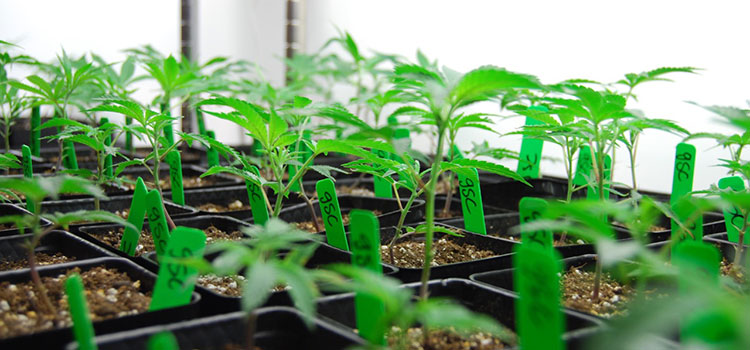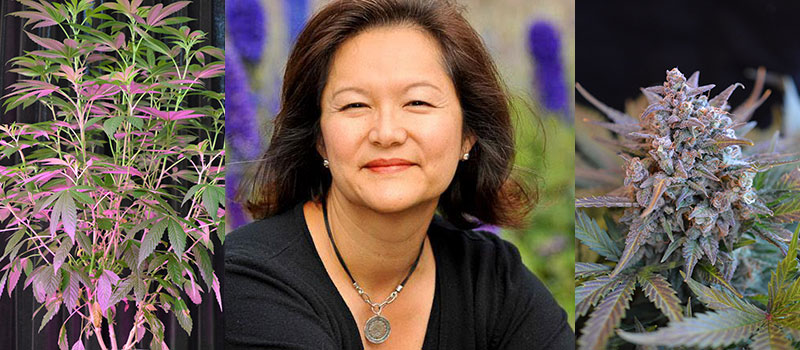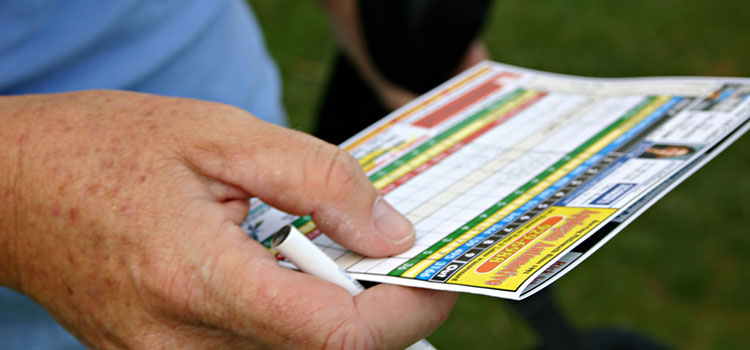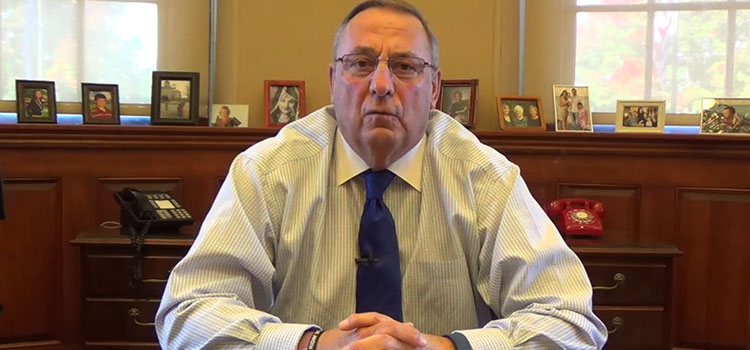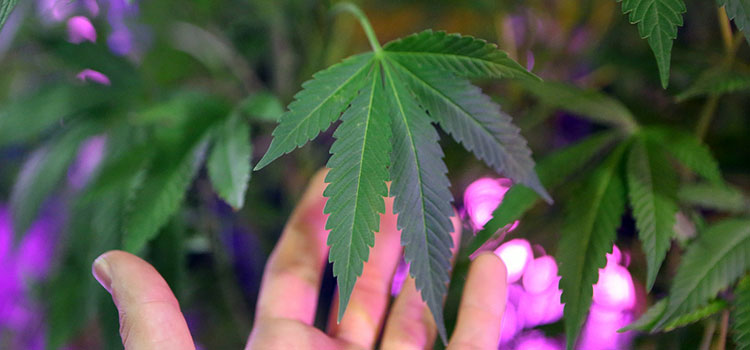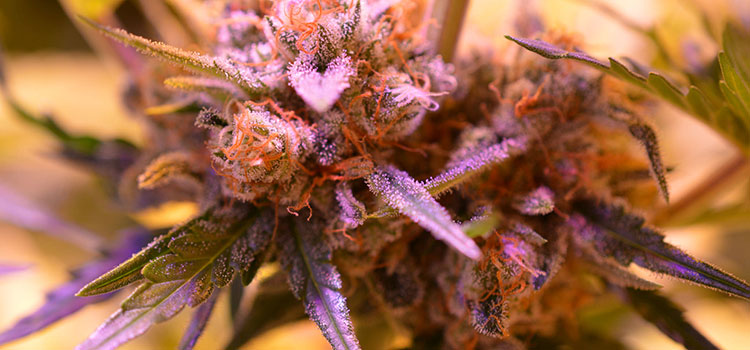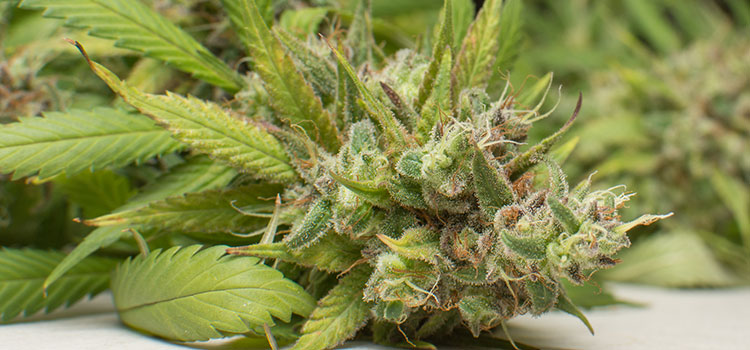Susan Rust is Founder of 4blooms, a California-based boutique marketing firm serving cannabis industry clients. Susan brings 20+ years of enterprise web development, creative design, operations, sales & marketing experience to the cannabis space.
We recently interviewed Susan about marketing strategies for cannabis companies. In our discussion, she describes the problems faced by cannabis companies and highlights some under-utilized marketing avenues to help surmount them. Susan also explains how the core marketing strategy of a company should be reflected in its image, goals, and services, and how cannabis producers and retailers can work around some of the marketing restrictions prevalent among social and paid ad channels.
Read the full interview below:
Ganjapreneur: What about the cannabis industry was most attractive to you as a career marketer?
Susan Rust: I’ve done small business start-up marketing and consulting for years. It’s very rewarding to transform someone’s business with just a little effort, money and creativity. We offer such a wide range of services to take a business to the next level. Often owners are passionate about their cause, service or product so the supporting branding, messaging and technology get left behind. At some point, it becomes mission critical, not a luxury. When that happens, we’re here to help.
Do you work primarily with licensed cannabis companies or with businesses that are ancillary to the marijuana market?
So far it’s a mix of both. As the market matures, companies will feel the urgency to improve their marketing as more players with more funding flood into the market disrupting the collegial feel of today’s community. All cannabis companies would do well to evaluate how well their brand presents to both customers and investors. Investors in particular are keen to see a professional local or national marketing plan in place.
What is one commonly overlooked thing that cannabis companies can address to improve their marketing presence?
Branding and a polished website. Companies have to move beyond a literal leaf in yellow, red and green. It doesn’t allow the brand to stand out in a crowd. The logo has to be memorable, meaningful, a little witty and make people smile. Beautiful websites! A first impression is made within 50 milliseconds, according to noted behavioural researchers. And most websites are lacking in beauty, functionality and content.
Spending money marketing without these first two fundamentals makes everything harder and more expensive, so the owner raises the price of acquiring new customers.
Besides a good-looking website, what are other criteria a cannabis company should strive to satisfy with their marketing strategy? Could you break it down into some core foundations?
That’s a great question with a long answer! We recommend by starting with Personas. A Persona is a fictionalized version of your ideal client. Sometimes the most difficult part is convincing companies they need an ideal customer profile or they have incorrectly identified that buyer.
One client, a major distributor of cannabis paraphernalia felt very strongly their customers were males, 18 to 25. It turns out, that demographic was only 35% of their buyers. Almost 50% of their clientele were over 45! That’s an example of internal bias and experience not matching the data. For instance, they likely met the male-18-to-25 at events and trade shows, but they didn’t take into account that other demographic groups were not likely to attend cannabis events.
Dispensaries are a good example of trying to sell to “everyone” with first-time buyer discounts. Unfortunately, this creates a race to the bottom: “Buy from me, I’m the cheapest.” Ironically, this is a specific Persona, “Will go the cheapest route,” and doesn’t engender loyalty, yield high-dollar customers or provide any brand uniqueness. There are so many possible ways to stand out in this crowd, it just takes a willingness to invest a little time, money and effort into creating a new business model and then promoting that. This unique positioning is what will allow for investment, buyout and franchising.
Below are our four big buckets of services. We provide this structure to allow people to think about their marketing from the outcome they would like.
1. Marketing 101 (Strategy & Technology Foundation)
Start with the basics to begin launching a product or building your brand.
- Persona & Keyword Research
- Branding & Design
- Web Design & Development + Technology
2. Get Found (by Google, Bing and Directories)
Websites are for visitors AND search engines. Be found by your ideal customer.
- Local Search
- Technical SEO
- Ongoing Organic SEO
- Improve traffic volume with #3
3. Be Seen (Potential Customers on Social Media & Paid Ad Channels)
Content will always be king. Write, publish and promote content to attract new business.
- Web Content
- Paid Ad Channels
- Add other Social Media channels: TW, In, Li, Pi
- Best results when leveraged with services #1 and #2
4. Grow Sales (Converting Web Traffic and Social Media to Customers)
Provide well-written, persona-based, high-quality content to gain new customers or sales.
- Content Offers, Sweepstakes, Promotions
- Landing Pages
- Paid Advertising & Social Media
- Best results when leveraged with services #1 thru #3
Would you say each platform of a good marketing plan is equally important, or can a company find success by focusing on one or two core delivery methods?
Each of our four major steps is important. However, which of the four a company needs depends on your business goals. For instance, a new edible product may be most interested in growing its brand and not be looking to generate sales because they are still hand-batching for their local market. Their next business goal may be to find investors. That means our “Be Seen” campaign which promotes a brand, grows their social media profiles, drives traffic to their website with engaging content and starts gathering emails to build a national database would be a good starting point.
One dispensary is planning a launch in January 2017. They need our Foundation package of identifying a Persona, Keyword Research for that audience and a website. They would benefit from our “Get Found by Google” for local SEO and organic SEO along with a small brand building campaign to warm up for the launch. Once they are open we can easily add on the “Grow Sales” campaign by marketing to their core audience to drive sales.
Marketing for a company is very custom based on business goals, audience, brand strategy and budget.
How does 4blooms stay ahead of the cannabis advertising bans in states that have decided to restrict the market, and on popular advertising platforms that have rejected cannabis ads?
Content, content, content. While advertising is banned, Google still serves up requested content. And there are many recognized cannabis ad channels as well, like Ganjapraneur. It really depends on the audience a customer is seeking and where that audience hangs. Avoid this one HUGE mistake: companies relying on social media as a standalone platform so when their account is shut down, they lose their audience. Social media’s job is to drive traffic to your website where you can snag and convert them to your own database.
What’s the most rewarding part of your job?
Seeing companies bloom with good branding, web, technology and marketing! So 4blooms has a double meaning, it’s the four components of a good marketing plan AND the four stages of marijuana.
Where do you see 4blooms in the next 5 years?
In 5 years we’ll be a 15-person (9 now) agency that is fierce and more specialized. And maybe purchased by a non-cannabis agency. I don’t have an interest in being large for the sake of being large. 4blooms will always be a quality, boutique firm that provides great strategy and services.
What’s one piece of advice you can offer to people considering entering the cannabis industry?
My advice on business, regardless of industry, is have an exit strategy, work ON your business and not just IN your business, and outsource things you’re not good at to save you time & money: marketing, bookkeeping, accounting, HR, cooking, housekeeping, etc. Advice for the cannabis industry: find an under-served market or demographic, and make sure it’s something you’re passionate about. It’s not about money. It’s about your life.
Thank you, Susan, for answering our questions and for sharing your breadth of knowledge and experience with our audience. To learn more about Susan or 4blooms, you can visit the company website at 4blooms.guru.







